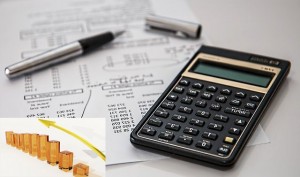Home
Strategies On How To Maximize Your Personal Finances
In order to have substantial amounts of money saved for any scenario where you would need money, personal finance should be taken very seriously. One must save money rather than spending everything they make. The following paragraphs will provide you with all of the information needed to get started on having great personal finances!
Know your financial goals and limits and keep them in mind. You need to be aware of what it is that you can and cannot do in the market. If you lack this awareness, you may make a detrimental mistake in your finances, which can in turn, directly affect your financial goals.
If one wants to give themselves better chances of protecting their investments they should make plans for a safe country that’s currency rate stays strong or is prone to resist sudden drops. Researching and finding a country that has these necessary characteristics can provide a place to keep ones assets secure in unsure times.
Use a card for small purchases each month such as groceries and gas and pay it off or pay off a majority of the balance each month. This will show creditors that you are capable of handling your card and being responsible with payments. Doing this on a regular basis will help to repair that bad credit score that you currently have.
A good rule of thumb for savings, is to put away 10% of your income each payday into a savings account. Make sure that you don’t have a debit or credit card linked to this account, as it is too tempting to spend it if you find something you can’t seem to live without.
Don’t get talked into quick money making schemes. It can be very tempting to give up your savings account to someone who promises to double or triple your money in a short period of time. Take the safe route, and realize that nothing is free. You will be better off slowly and steadily growing your savings rather than risky moves to get more faster. You could end up losing it all.
Do not put any more charges on your card if you are experiencing a hard time paying it off. Reduce your expense as much as you can and find another payment method to avoid maxing that card out. Before you charge anything to your credit card, you should pay your balance in full.
If you are fortunate enough to have any extra money in your checking account, be wise and don’t leave it there. Even if it’s only a few hundred bucks and only a one percent interest rate, at least it is in a traditional savings account working for you. Some people have a thousand or more dollars sitting in interest free accounts. This is simply unwise.
A good tip when it comes to personal finances, is to not buy impulsively. A good majority of all retail spending is on impulsive purchases. Rather, if you see something you want, analyze it on a scale of want to need and then give yourself a 24 hour cool down period before buying it. This should stop a lot of impulse buys.
Look up coupons online: you will be surprised how many businesses use online coupons to promote their products. Using online coupons can be a great habit to get into to retain better personal finances.
Speaking with family who is well-versed or who works in the financial field may help one learn to manage your finances. If one does not know anyone in the financial profession, then they should talk to someone that they know has a good handle on their finances and their budget.
Eliminate the credit cards that you have for the different stores that you shop at. They carry little positive weight on your credit report, and will likely bring it down, whether you make your payments on time or not. Pay off the store cards as soon as your budget will allow you to.
Find a free checking account. There are some accounts that will charge you a fee to hold your money there, and you want to stay far away from those. Why spend money when you don’t have to? Having a checking account with fees can end up costing you hundreds of dollars every year.
Rebalance any investments that you may have. Stocks and bonds have had an overall good year, though cash yields are near zero. Look at your portfolio and make sure that you don’t need to move anything around so that you are earning more money. You should be doing this every year to help your portfolio.
If you are traveling overseas, be sure to contact your bank and credit card companies to let them know. Many banks are alerted if there are charges overseas. They may think the activity is fraudulent and freeze your accounts. Avoid the hassle by simple calling your financial institutions to let them know.
A great personal finance tip that can help you save money is to eat out when it’s lunch time. Restaurants typically offer better deals for lunch than they do for dinner. If you enjoy eating out and don’t want to give it up, opt for lunch instead of dinner.
Even though some of these ways to keep your personal finances under control may be difficult to actually complete, it is important that you look past the immediate pain of saving money. This is since, the pain of saving money is definitely outweighed by the satisfaction of having the money readily available when it is really needed.















